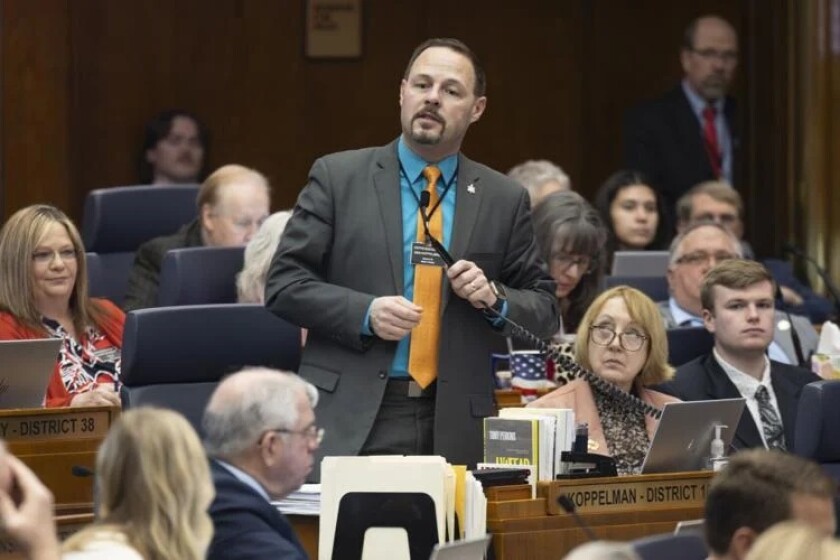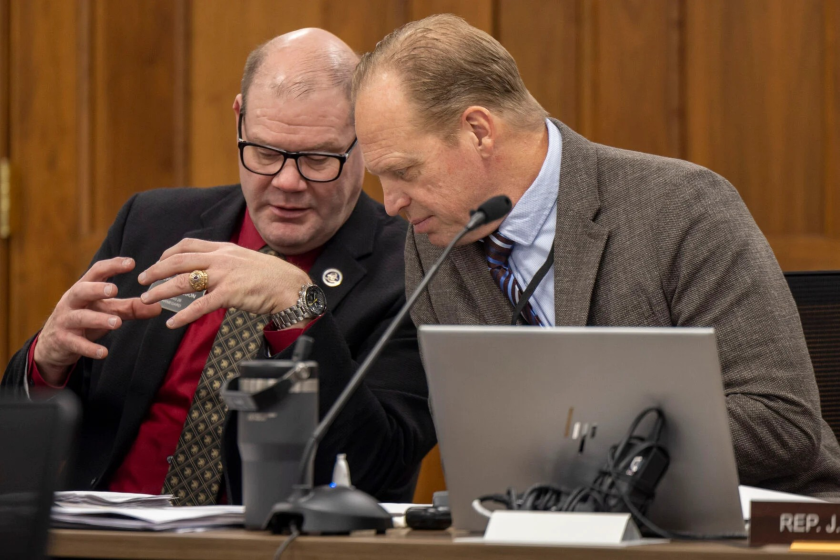BISMARCK — The North Dakota House of Representatives on Tuesday, April 8, reconsidered and passed a bill on when to start the clock on lawmakers’ term limits after they voted the bill down the day prior.
House Bill 1300 was originally introduced by Rep. Ben Koppelman, R-West Fargo. His version of the bill stated that “the time for calculating the number of years of service for members of the legislative assembly” for term limits started on Nov. 7, 2022 — the day voters passed term limits.
This date would mean that any legislators elected in odd districts in the 2020 general election would not have the clock start for term limits until they start their term after the 2024 general election, but those elected in the 2022 general election — the same election voters adopted term limits — would have the clock start when they took office for the 2023 legislative session.
The bill was amended by the Senate to set the effective date for the start of term limits as Jan. 1, 2023, meaning legislators elected in 2022 would not have their time in office count toward term limits until they took office following the 2026 general election.
Koppelman and Sen. Janne Myrdal, R-Edinburgh, who offered the amendments adopted by the Senate, have both said they feel their proposed date stands a better chance of surviving a legal challenge to term limits.
When the bill was returned to the House on Monday for a vote of concurrence, lawmakers voted to concur with the Senate’s changes, but when it came up on the floor for a final vote, the chamber voted to kill the bill.
On Tuesday, the House reconsidered the bill and voted not to concur with the Senate’s amendments, setting up a conference committee showdown between the two versions.
“The Senate changed the calculation timetable to Jan. 1, 2023, as opposed to our version of Nov. 7, 2022,” Rep. Austen Schauer, R-West Fargo, said on the House floor. “After looking at it and getting the response from the House yesterday, we at first did not think this was a difference maker at all, but we feel as though it can be, and we would like to take this back to conference committee. We really have nothing to lose on this.”

Koppelman told the Tribune after the vote that he spoke with lawmakers between Monday and Tuesday, advocating for the House to give the bill another chance.
ADVERTISEMENT
“I just went back and said, ‘Give us a second chance,’ ” he said. “Let us put this in conference committee and then hopefully have the Senate take a vote on the bill — a clean bill that we sent them — as opposed to the amended bill they sent us.”
Recently passed Senate Concurrent Resolution 4008, which seeks to change the way term limits would be imposed on the Legislature, includes a section that would set the start date for calculating term limits as Jan. 1, 2023, in line with the Senate’s version of HB 1300.
The resolution creates a ballot measure proposing changing the Constitution to adjust the term limits passed by voters in 2022. The ballot measure will appear on the ballot for the 2026 general election, where voters will make the final decision on the Legislature’s proposed adjustments to term limits.

















